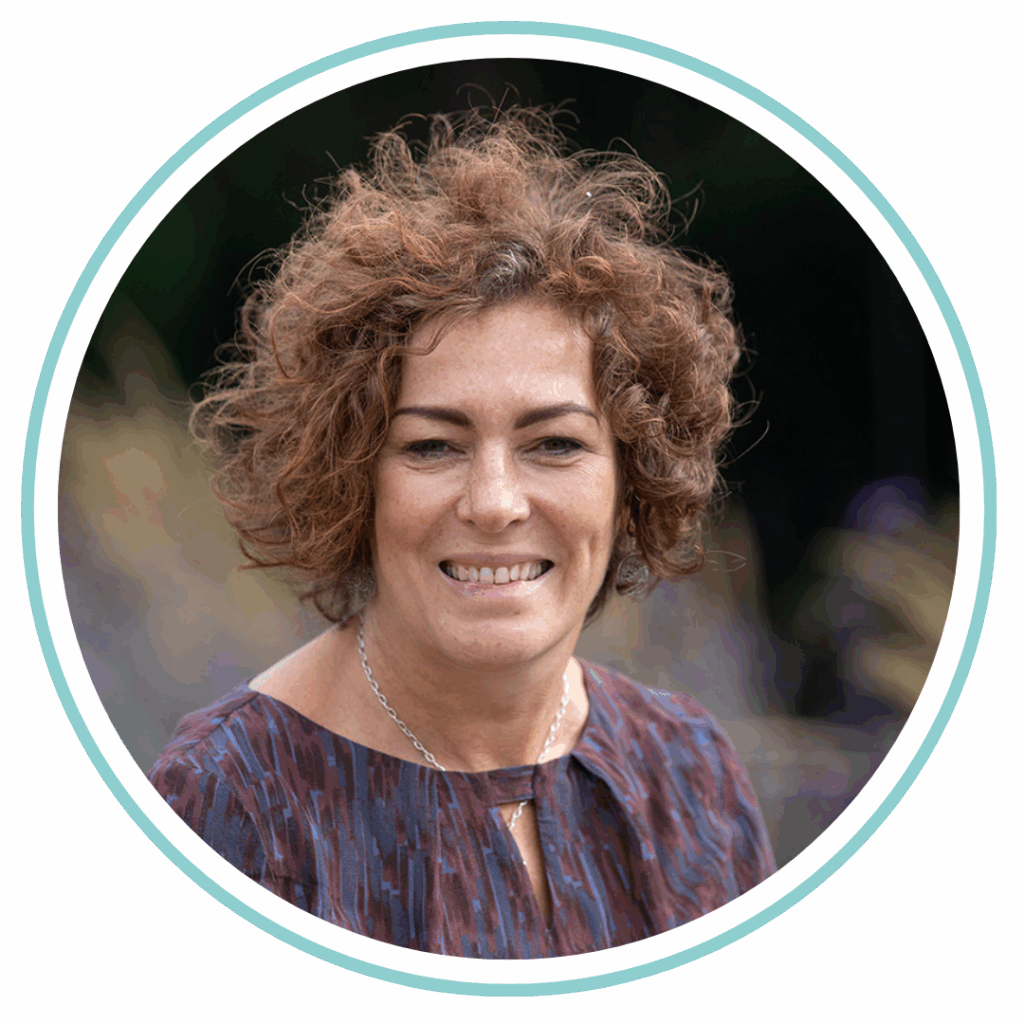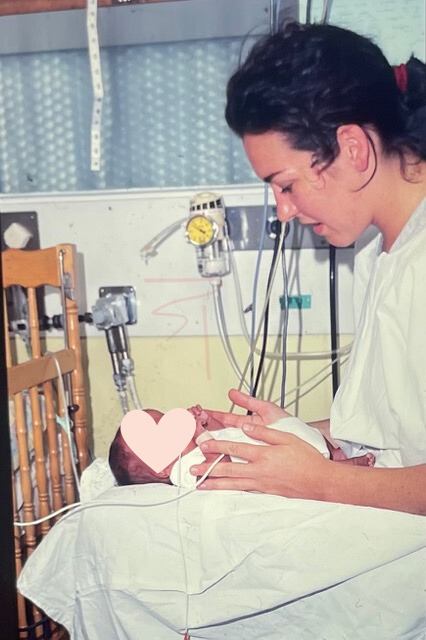By Jennifer Schooling, Brazelton Senior Trainer
Jen Schooling, NBO Senior Trainer, shares her thoughtful and inspiring reflections on how care for babies and families in the neonatal unit has evolved over the years — improvements she has both observed and helped to shape throughout her career.
Jen has been part of the Brazelton Centre UK for over 10 years as one of our senior trainers. In addition to all the training she has delivered over the years, she was also a Clinical Lead Neonatal Developmental Physiotherapist — a role she recently retired from after more than 30 years.

Beginning my role as a neonatal physiotherapist in a large level 3 neonatal unit in the early 1990s was both a transformative and enlightening professional experience for me, which significantly shaped the remainder of my clinical practice.
Through my previous experience working with infants and children to support their neurodevelopment—many of whom had received neonatal care—I became increasingly interested in the origins of their developmental journeys. At that time, emerging research was underscoring the importance of early intervention and the brain’s capacity to adapt in response to experience. Motivated by these findings, I pursued further exploration into the earliest experiences commonly shared by infants who begin life in neonatal care.
During my early visits to the NICU, which were brightly lit and noisy with radios playing in the nurseries and considerable clinical activity, I observed babies exposed in uncovered incubators, lying on their backs wearing only a nappy, without bedding or positioning support. The babies exhibited frequent, frantic movements, looked uncomfortable in their facial gestures and appeared to have limited opportunity for rest or sleep. Very few parents were present, and there appeared to be no comfortable seating available for them, to sit with their babies. The intention of the medical and nursing care was not in question, I met practitioners who were engaged and demonstrated enormous compassion, caring for this vulnerable population. Significant medical advances during this period contributed to improved survival rates for younger and smaller babies. When I asked the consultant accompanying me about the babies’ high level of activity and apparent discomfort, I was told “not to worry, this is typical for premature infants”.
But I did worry and wondered what could be done. The focus was on the medical and nursing care with minimal allied health or psychology presence in neonatal care at this time. I started reading about Berry Brazelton’s (NBAS) and Heidelise Als’s (NIDCAP) work and became fascinated by their approaches. I was excited to read about their alternative ideas to caring for infants by recognising them as individuals with their own unique needs and an ability to communicate these through their behaviours. This inspired a vision of a possible future for the NICU where I worked, though achieving it would necessitate a significant cultural transformation.
It was evident that considerable effort was required to persuade others to collaborate with me. We established a developmental care group, which received strong support from many nurses. Through this initiative, we gradually implemented changes to Infant and Family Centred Developmental Care (IFCDC) practices, achieving incremental improvements over the course of many years. This process has entailed numerous challenges and continues to require ongoing commitment and resilience.

During a few years dedicated to starting my own family, I was fortunate to experience straightforward pregnancies, deliveries, and the initial postpartum periods with my children. These experiences underscored their essential role in my transition to motherhood. Upon resuming my practise in the NICU, I became acutely aware of the challenges many families face when their babies require neonatal care. The inevitable separation between parents and newborns observed in this setting was particularly concerning, especially given the growing recognition of the critical impact early bonding has on healthy attachment and development.
This inspired me to consider how we change not only the care for the babies, but the care for their families too.
Infant AMOR
During my training to become NIDCAP, NBAS and NBO certified, my skills in observing infant behaviour were strengthened. These experiences greatly improved my understanding of how babies communicate their needs, guided by the AMOR framework (autonomic, motor, organisation of state, and responsiveness). Learning to carefully observe infants was fundamental to understanding their cues. By recognising signs of stress and discomfort, even when interventions were minimal, considering factors such as the environmental impact, positioning, daily caregiving, tactile stimulation, medical interventions and feeding practices. It was clear that the babies generally appeared more settled and calmer when supported in their parents’ arms, experiencing skin-to-skin contact and hearing their parents’ voices. Sadly, this practise was rarely observed during my early experiences in NICU.

Identifying both infant strengths and areas of sensitivity or challenge can help support parents in their understanding of and responses to their babies’ needs and adjusting caregiving appropriately. It is important to acknowledge infants’ competencies and resilience, even in very young babies. In my work, I increasingly recognised the value of focussing on strengths rather than solely on deficits when working with parents and colleagues to promote an effective strength-based model. This fundamental principle was derived from Berry Brazelton’s significant insights regarding the competencies of newborns.
Parent AMOR
Subsequently, I developed a deeper appreciation for the importance of actively listening to families and gaining insight into their concerns, anxieties, and need for closeness with their babies. I came to recognise the significance of employing open-ended questions and practicing active listening, rather than positioning myself as an educator or expert. This collaborative approach enables us to engage with parents according to their current circumstances and partner with them in understanding and responding to their babies’ needs. The application of the parent AMOR framework (affect regulation, mentalisation, openness, and responsiveness) served as the foundation for this perspective.


Practitioner AMOR
Over time, I recognised the significance of practitioners understanding how to support babies and families in building their relationships together, with an emphasis on responsivity. This concept is reflected in the practitioner AMOR framework (affect regulation, mentalisation, openness, and responsiveness). In neonatal care, practitioners play an essential role in promoting closeness and connection between infants and their parents within the hospital environment, helping parents to feel empowered and provide the responsive care that their babies require.
Professionals often work with complex cases, especially involving infants with regulatory challenges related to prematurity and medical conditions, as well as families experiencing dysregulation due to a combination of background factors and the circumstances of having an infant in neonatal care. As a result, achieving mutual responsivity and fostering meaningful connections between parent and child becomes a highly delicate and often precarious process. Effectively supporting babies and parents under these circumstances necessitates the cultivation of specialised skills, as outlined by the practitioner AMOR.
Reflections
I have had the opportunity to both participate in and observe significant advances in the holistic care of preterm and sick infants and their families within the neonatal unit over the past 30 years and I deeply appreciate all my colleagues’ willingness to collaborate and adapt to ongoing changes.
We begin with every individual encounter in the neonatal setting, focusing on the AMOR of the infant, parents, ourselves and of our colleagues, to contribute to addressing the complexities of vulnerability, uncertainty, and stress—and to impact, even in minor ways, the experiences of the infants and families under our care. This approach helps us become reflective and engaged practitioners.
Through my work as a neonatal therapist, over the past 30 years, I have particularly appreciated the principle of openness: approaching each baby, family, and colleague according to their unique stage or circumstance. This includes maintaining openness towards myself without feeling compelled to meet particular expectations but instead focusing on being present and doing my best in each interaction.
Reference;
Gravens By Design: The Newborn Behavioral Observations System to Support Early Parent-Infant Relationships in the NICU. Lise C. Johnson, MD, Jessica Dym Bartlett, MSW, LICSW, PhD, J. Kevin Nugent, PhD. Neonatolgy Today (September 2023)


